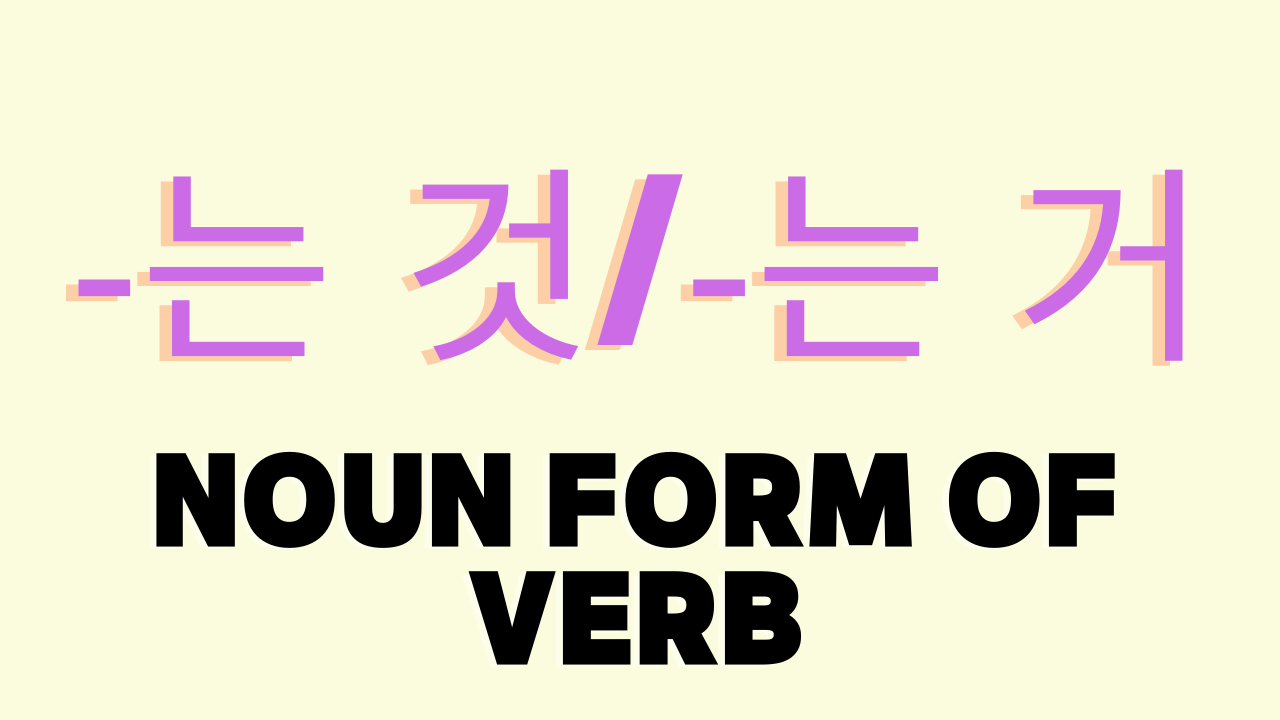-는 것/-는 거 in Korean grammar: Noun form of Verb (~ing)
Jan 09, 2023
- Author: Paloma Harris (South Africa), Carla (America)
- Editor: Good Job Korean team
Conjugation of -는 것/-는 거
‘-는 것’ and -는 거 are the same. They are the most basic and general way of changing a verb into a noun in the Korean language. Adding ‘-는 것’ or ‘-는 거’ to the verb stem converts a verb into a noun.
Ex)
주다(to give) -> 주는 것/주는 거 (giving)
보다(to watch) -> 보는 것/보는 거 (watching)
하다(to do0 -> 하는 것/ 하는 거 (doing)
However, there is one exception. When Verb ends in "ㄹ" final consonant, remove "ㄹ" final consonant and add ‘-는 것’.
Ex)
놀다(to play) -> 노는 것/노는 거 (playing)
알다(to know) -> 아는 것/아는 거 (knowing)
살다(to live) -> 사는 것/사는 거 (living)
Usages of ‘-는 것/-는 거
The original meaning of 것 or 거 is ‘thing’, ‘stuff’, or ‘fact’. So -는 것 also have some different translations depending on contexts. Let’s check out the usages with examples.
Usage of ‘-는 것’ #1.
-Doing something or The act of doing something
Ex)
친구들이랑 노는 것을 좋아해요.
I like hanging out with my friends.
*친구: friend *놀다: to hang out, to play *좋아하다: to like
Usage of ‘-는 것’ #2.
-The thing which one does or What one does
Ex)
요즘 공부하는 거는 한국어예요.
The thing that I study these days is Korean language. (What I am studying these days is Korean language)
*요즘: these days, recently *공부하다: to study *한국어: Korean language
Usage of ‘-는 것’ #3.
-The fact that one is doing or does something
다음 주에 우리 한국 가는 거 알아요?
Do you know the fact that we go to Korea next week? (Do you know that we are going to Korea next week?)
*다음: next *주: week *우리: we *가다: to go *알다: to know
Examples
책 읽는 것은 취미예요.
Reading a book is my hobby.
*책: book *읽다: to read *취미: hobby
저는 영화 보는 것을 좋아해요.
I like watching movies.
*영화: movie *보다: to watch *좋아하다: to like
제가 먹는 것은 피자예요.
What I’m eating is pizza.
*먹다: to eat *피자: pizza
오늘 우리 만나는 거 알아요?
Do you know (the fact) that we are meeting today?
*오늘: today *우리: we *만나다: to meet *알다: to know
- Author: Paloma Harris (South Africa), Carla (America)
- Editor: Good Job Korean team


